Greetings from the end of October 2023, where I’m still doing book tour events(!!!), only instead of listening to Pop Radio as I drive from place to place, I’m in my car thinking about/listening to updates on the war with Hamas. At these events, I say nothing about the war. The war - and, indeed, my Jewishness - does not exist inside the bubble of book tour. Discussing politics and religion is no way to turn strangers into friends. I understand that, and I compartmentalize. Lucky for me, all of these topics are completely avoidable on my book tour, because I wrote a novel set in Quaker New England.
I arrive at a beautiful, waterfront locale on the Cape or a quaint picturesque vineyard in the middle of Massachusetts and let the car idle as I gather my wits about me and prepare to be upbeat and “on.” I greet the enthusiastic host who invited me months ago to her bookstore/wine bar/library/book group at a library/inn with a bookstore and a wine bar and take a deep breath and begin my spiel.
They do not know that I feel conflicted about posting fun pics on Instagram from these event while also posting serious statistics and news about Israel. When I started posting as an author, I was taught the rule of thirds: post about 30% of the time about your book stuff, 30% personal stuff (dog pics encouraged!), and 30% about supporting other authors. Where does war fit into this social media matrix? How much time do I allot to the 200 plus hostages versus me signing books at the Hyannis B&N?
And I worry: about speaking up in ways that might make people uncomfortable, that might invite negative reactions and hatred, that bring anti-semitism to my doorstep. I could just post pretty pics and stay quiet.
How do I live a Jewish life and a life as a (sort-of and very minor) public figure?
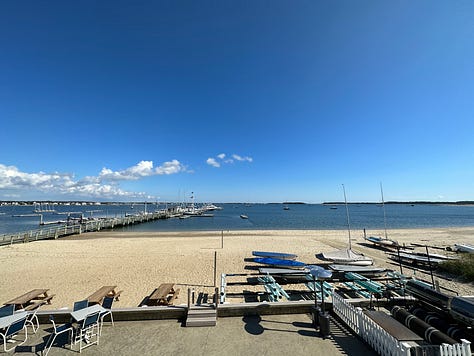
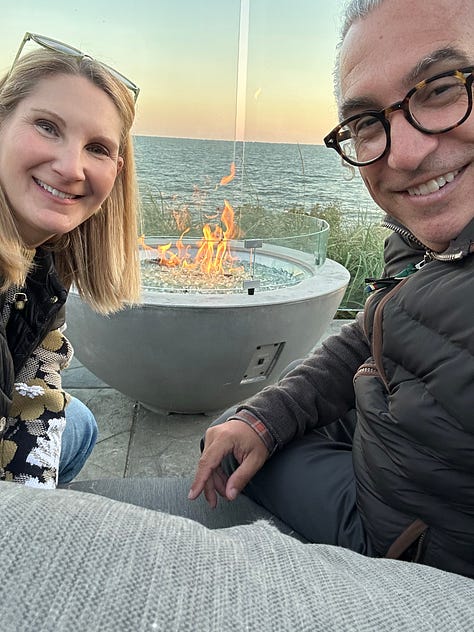
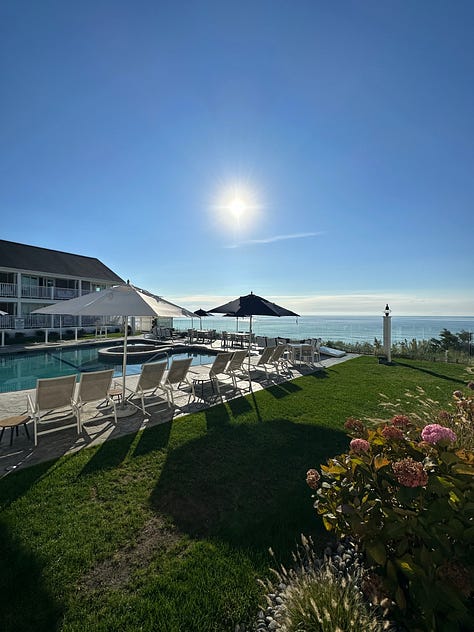
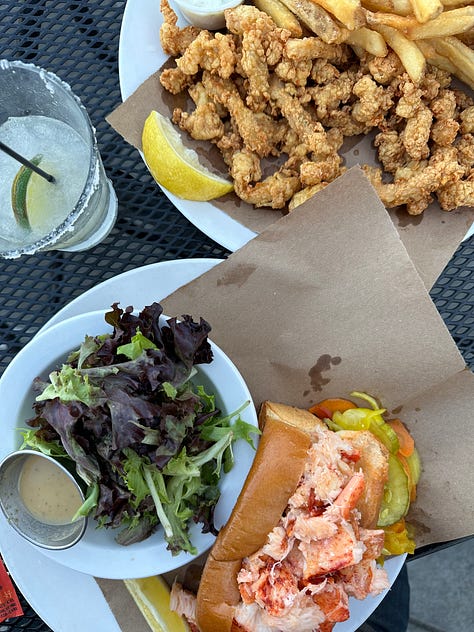
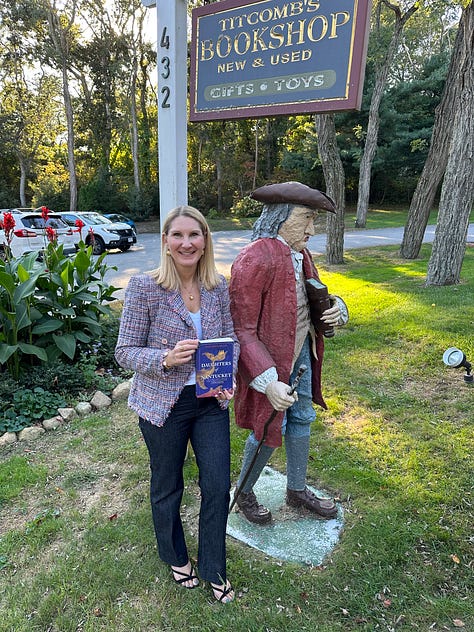
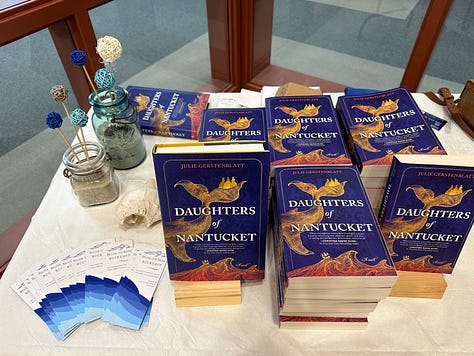
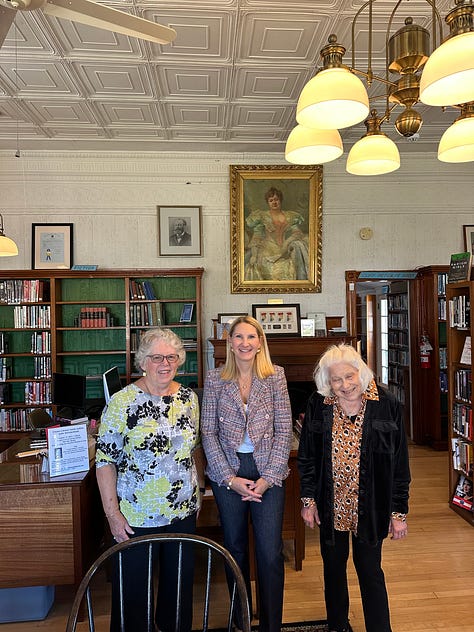
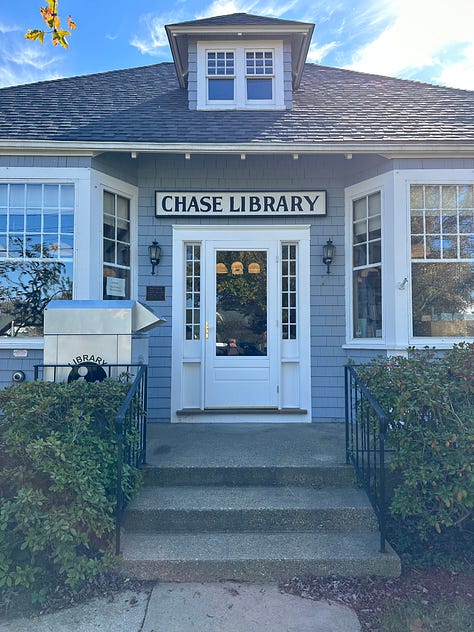
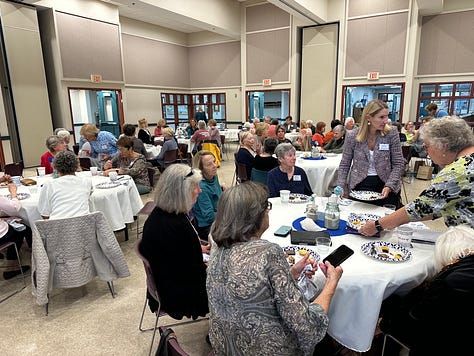
These are the kind of thoughts many of us are wondering about right now. So we acknowledge both, letting happiness live side-by-side with the wretchedness. Although I haven’t been posting many pics, I allow myself to enjoy the book tour experience IRL.
One thing I’ve been talking about lately with these groups is the idea of writing as a transactional art form. It’s based on a theory I learned in graduate school when I took a class in art and philosophy with the famous educator Louise Rosenblatt who wrote Literature as Exploration and The Reader, The Text, The Poem. I’m going to try and explain some of her main concepts here in as clear a way as possible, because these concepts transformed how I think about reading and writing.
Here’s me, writing this novel with the characters alive in my head. And then it gets published, and it no longer belongs to me - the story now belongs to the reader. The book is theirs, and the characters become alive in their heads. They sit in a favorite chair somewhere in their house, or maybe on a beach, or an airplane, and they imagine faces, and voices, and a whole world. I’m not there. It’s the reader and the text. Readers bring to the experience their own personal histories; who they are and where they’ve been and what they believe informs how they read. Readers have the power and control to interpret what they read and make sense of it.
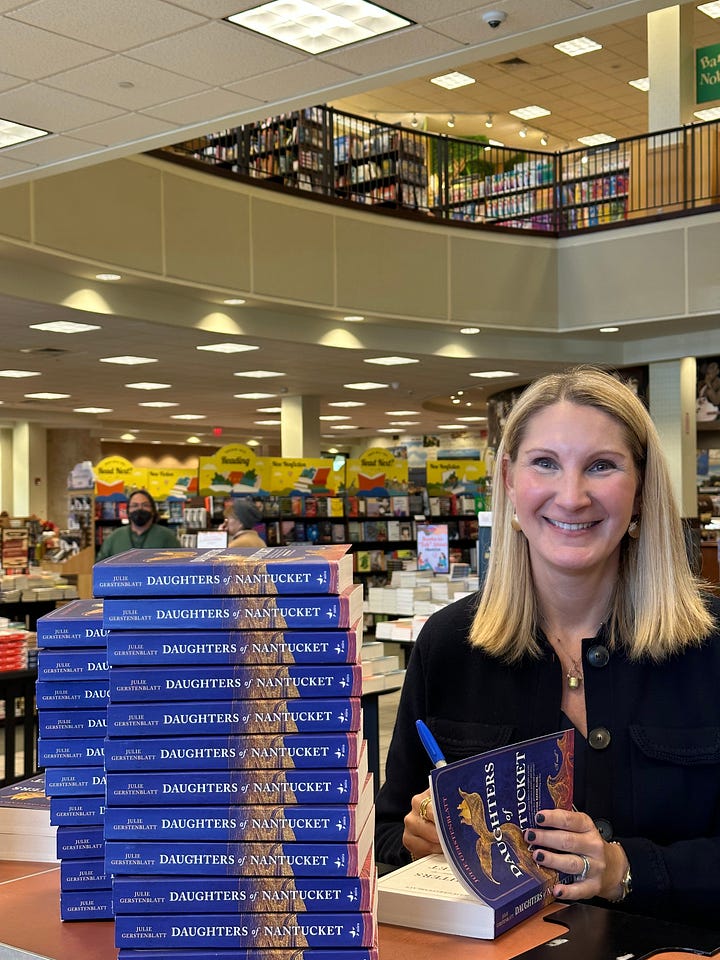
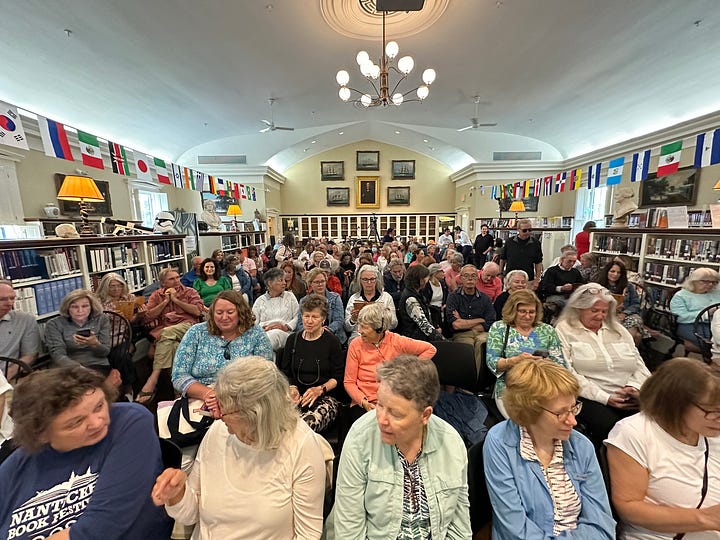
One could argue that the sheer act of writing something makes it art, but I like to think that writing becomes art once a reader interacts with it. Further, I believe there’s this additional level of artistry that comes about when the reader and writer are together discussing the work, and the story becomes a living, shared experience. Here’s you and me and the characters and the plot together at this wine bar bookstore inn! Isn’t that amazing!? To me, that is true art.
There are other theorists who write about my second point in today’s newsletter, which is that reading and writing are inherently political acts. Think Paulo Freire’s Pedagogy of the Oppressed, think of all poetry ever — like Ocean Vuong who says that reading poetry is an act of political resistance and Ukrainian-American poet Ilya Kaminsky who realized at a young age that language was a political tool - and a weapon. I’m not just talking about George Orwell’s 1984 or Margaret Atwood’s Handmaid’s Tale here. I’m talking about ALL reading and ALL writing. The mere act of being able to read and write is political: just think of why slaves weren’t allowed to be literate. Because literacy is power. It allows us to engage with others and form opinions and know what is happening in the world. It allows us to say something insightful — or inciting. This is why books get banned, because reading and writing is THAT powerful and important.
And so we must do it. We must speak, we must write, we must read. And hopefully, in the dialogue and the exchange, we can make meaning together.
Be well.
xo
Julie
Upcoming Events:
Come see me at The Ocean House on Tuesday, November 1st, in conversation with the lovely and amazing Deborah Goodrich Royce. There will be wine and snacks.
November is Jewish Book Month. Yes, that’s a thing! To celebrate, I’m going on tour with the Jewish Book Council, along with about 250 other authors who will be visiting various synagogues and JCCs around the country, totaling over 1300 events. On Friday, November 3rd, I’ll be speaking at the Katz JCC in Cherry Hill, NJ and on Monday, November 6th, I’ll be speaking with Rachel Beanland, who wrote The House is on Fire, at the Marcus JCC of Atlanta. (We both wrote historical novels centered around fires! Should be a fiery discussion!) I am looking forward to being part of this community of Jewish readers and writers during this difficult time.


